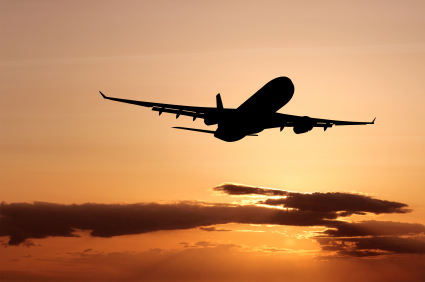
According to a report from Travel Weekly (subscription required), the Department of Transportation (DOT) has not handed out a single fine for violations of its three-hour tarmac delay rule. The rule stipulates that tarmac delays longer than three hours are subject to a fine of up to $27,500 per passenger. The DOT has handed out two small fines, to United and Pinnacle, for improperly reporting tarmac delay data, but no fines have been issued for violations of the three-hour rule. There have been sixteen three-hour delays since the rule took effect in late April.
So is this a case of all bark and no bite? Yes and no. The lack of fines is not entirely surprising, because the DOT wrote all sorts of exceptions into its rule: “For domestic flights, the air carrier will not permit an aircraft to remain on the tarmac for more than three hours unless the pilot-in-command determines there is a safety-related or security-related impediment to deplaning passengers (e.g., weather, air traffic control, a directive from an appropriate government agency, etc.), or Air Traffic Control advises the pilot-in-command that returning to the gate or permitting passengers to disembark elsewhere would significantly disrupt airport operations.”
That last part—in which the pilot or tower can override the rule—explains why at least some of the violations so far have gone unpunished. The DOT told Travel Weekly, “Some investigations have been closed because they occurred under circumstances excepted by the tarmac delay rule, such as instances involving safety, security or air traffic control operations issues.” This is encouraging, because it shows the DOT is operating in reality and considering the circumstances of each delay rather than handing out fines left and right. Those exceptions it added to the rule weren’t window dressing, after all.
However, the DOT went on to say, “In other cases, the tarmac delays violated the three-hour rule by only a few minutes, and DOT determined the carrier had worked to comply with the rule.” This doesn’t seem sensible. A violation is a violation, isn’t it? I had a professor in college who locked the classroom door when his wristwatch read 8:00 a.m., which was when the class started. If you showed up and that door was locked, you weren’t coming in, even if it was only 8:01. My feeling is that if a delay reaches the three-hour mark, and neither the pilot nor air traffic control has intervened to justify overriding the rule, then you’ve got a violation on your hands. Otherwise, what’s the point of having the rule at all?
It’s difficult to know what to make of this. In many ways, the rule is working exactly as planned: Tarmac delays have all but disappeared, and many of the violations were excused as stipulated by the DOT’s language. But the DOT has clearly muddied the waters by showing leniency where it seems unearned. Considering the rule has likely contributed to a small but significant rise in cancellations, the absence of penalties for real violations makes the rule feel toothless and inefficient. The agency shouldn’t be out for the airlines’ blood, but it should enforce its own policy.
Readers, what do you think about the DOT’s lack of fines?
We hand-pick everything we recommend and select items through testing and reviews. Some products are sent to us free of charge with no incentive to offer a favorable review. We offer our unbiased opinions and do not accept compensation to review products. All items are in stock and prices are accurate at the time of publication. If you buy something through our links, we may earn a commission.
Related
Top Fares From
Today's Top Travel Deals
Brought to you by ShermansTravel
France: 8-Night Paris, Avignon & Nice...
Infinity Worldwide Vacations
 vacation
$2880+
vacation
$2880+
Poconos: 3 Nts in Garden of...
ResortsAndLodges.com
 hotel
$305+
hotel
$305+
7-Nt Canada & New England Cruise,...
Princess Cruises
 cruise
$839+
cruise
$839+



